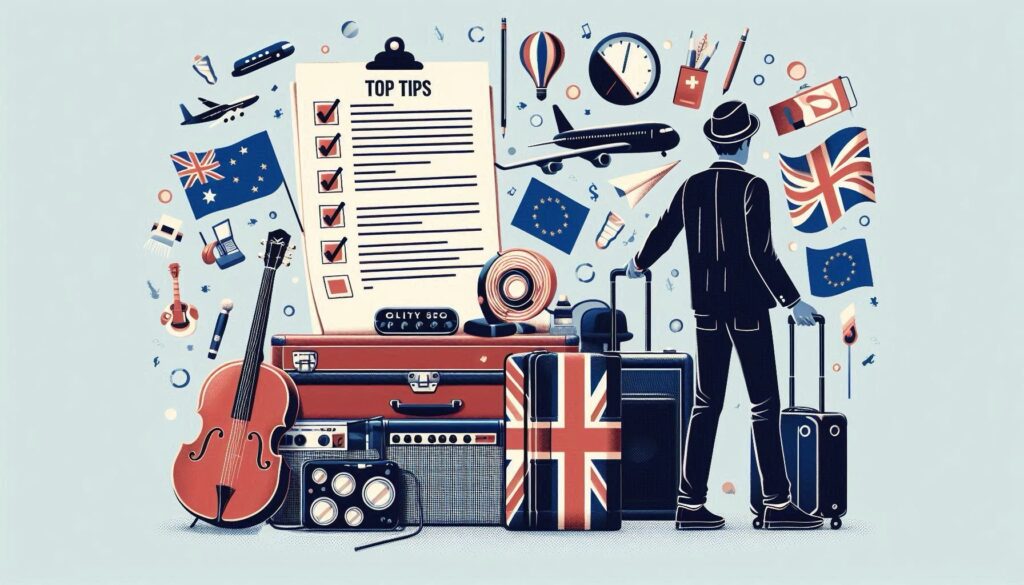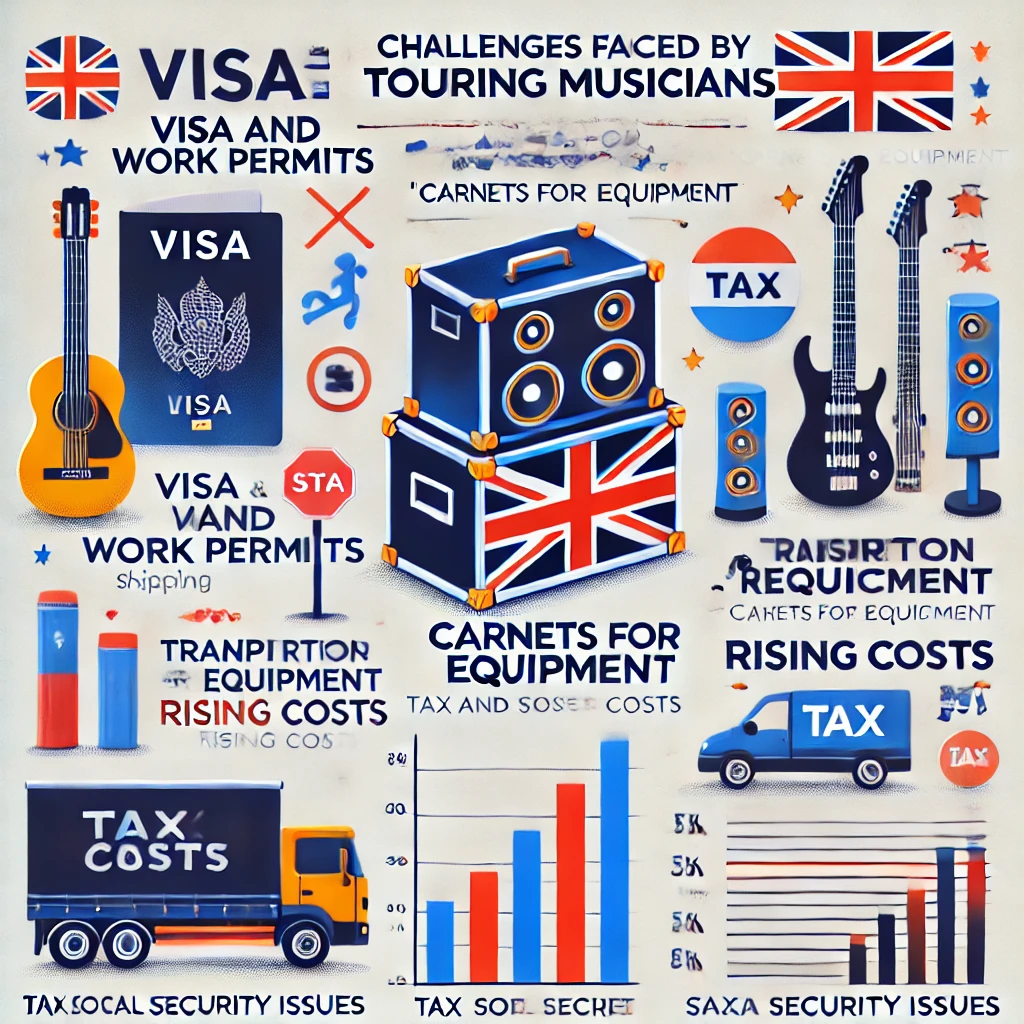How Brexit Has Affected Touring Musicians
When the UK officially left the European Union, the music industry faced a seismic shift. For decades, UK musicians could effortlessly tour across EU countries, relying on the principle of free movement. This seamless access allowed artists to build audiences, collaborate with international acts, and gain invaluable experience without worrying about bureaucratic barriers. However, Brexit has replaced this freedom with a tangle of legal, logistical, and financial challenges. From visa requirements and carnet documentation to new transport restrictions, the process of organising European tours has become significantly more complex. These changes disproportionately affect emerging artists who lack the resources to navigate the additional red tape, potentially stifling the growth of a generation of UK talent on the global stage. Established acts, while better equipped, are not immune to the heightened costs and logistical headaches, highlighting the widespread impact of Brexit on the entire music industry.
The Challenges
- Visa and Work Permits: Pre-Brexit, UK musicians could tour EU countries without needing work visas. Now, depending on the country, artists may need to apply for visas or work permits, often at considerable cost and with lengthy processing times. You can check the UK.GOV website for more information.
- Carnets for Equipment: Musicians transporting instruments and equipment across EU borders must now acquire a carnet, a document detailing the gear being temporarily exported. This comes with additional fees and administrative overhead.
- Transportation Restrictions: UK-based touring vehicles face limits on the number of stops they can make in the EU. This cabotage rule complicates the logistics of multi-country tours.
- Rising Costs: Increased costs for visas, carnets, and transport are particularly burdensome for emerging artists who operate on tight budgets.
- Tax and Social Security Issues: Brexit has introduced new complexities in tax and social security arrangements, requiring artists to navigate unfamiliar systems in each EU country they visit.
Top Tips for Musicians Navigating Post-Brexit Touring
While the challenges are significant, careful planning can help mitigate the hurdles. Here are some practical tips for musicians planning to tour Europe post-Brexit:


- Research Visa Requirements Early: Each EU country has its own rules for work visas and permits. Check the requirements for all the countries on your itinerary well in advance.
- Budget for Carnets: Factor in the cost of an ATA carnet for your equipment and ensure you’ve itemised everything accurately. Consider sharing gear with local bands to reduce costs.
- Work with a Logistics Specialist: Companies specialising in touring logistics can help navigate the complexities of transport and carnets, ensuring compliance with new regulations.
- Join Industry Groups: Organisations like the Musicians’ Union and the Incorporated Society of Musicians provide resources and lobbying efforts to improve conditions for touring artists.
- Consider European Partnerships: Collaborating with EU-based artists or promoters can help circumvent some logistical challenges, such as using EU-registered vehicles for transport.
- Keep an Eye on Tax Laws: Stay informed about double taxation treaties and consider hiring a tax advisor familiar with international touring to ensure compliance.
- Maximize Online Presence: The costs and complexities of EU tours might mean fewer physical shows. Build a strong online presence to maintain and grow your fanbase in Europe.
A Call for Change
The post-Brexit touring landscape is undeniably challenging, but it has also spurred efforts to push for change. Many in the music industry are lobbying for more straightforward visa arrangements and exemptions for touring artists. Until significant progress is made, preparation and adaptability will be key for musicians hoping to continue connecting with audiences across Europe.
Touring Europe post-Brexit may not be as simple as it once was, but with the right strategies and resources, musicians can still find ways to thrive on the international stage.




